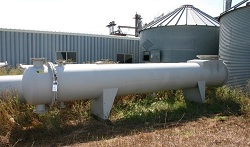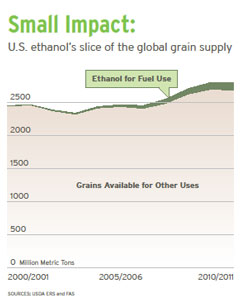 Save the date. Nebraska Ethanol Board’s (NEB) 2011 Emerging Issues Forum is set for April 7-8, 2011 in Omaha, Nebraska. The event is being held at the Magnolia hotel. While the agenda is still coming together and registration is not yet open (but soon), confirmed speakers already include:
Save the date. Nebraska Ethanol Board’s (NEB) 2011 Emerging Issues Forum is set for April 7-8, 2011 in Omaha, Nebraska. The event is being held at the Magnolia hotel. While the agenda is still coming together and registration is not yet open (but soon), confirmed speakers already include:
- • Jan Koninckx, Global Business Director-Biofuels, DuPont: Fuel production opportunities for the corn ethanol sector
• Douglas Durante, Executive Director, Clean Fuels Development Coalition: Legislative policies impacting FFVs and the Blend Wall
• Dave Vander Griend, president, ICM: Improving ethanol value in emerging markets
• Steffen Mueller, University of Illinois at Chicago: Low Carbon Fuels Standards and RFS2 Compliance
• Alvaro Cordero, Manager of International Grains Operations, U.S. Grains Council: Corn and DDDGs demand and export marketing
• Ron Lamberty, Market Development Director, American Coalition for Ethanol: Blender pump market development strategies
Past years have shown this forum to be informational and timely. To sign-up for forum updates and to be alerted when online registration opens, click here.










 Buis and Todd Becker, CEO of
Buis and Todd Becker, CEO of 
